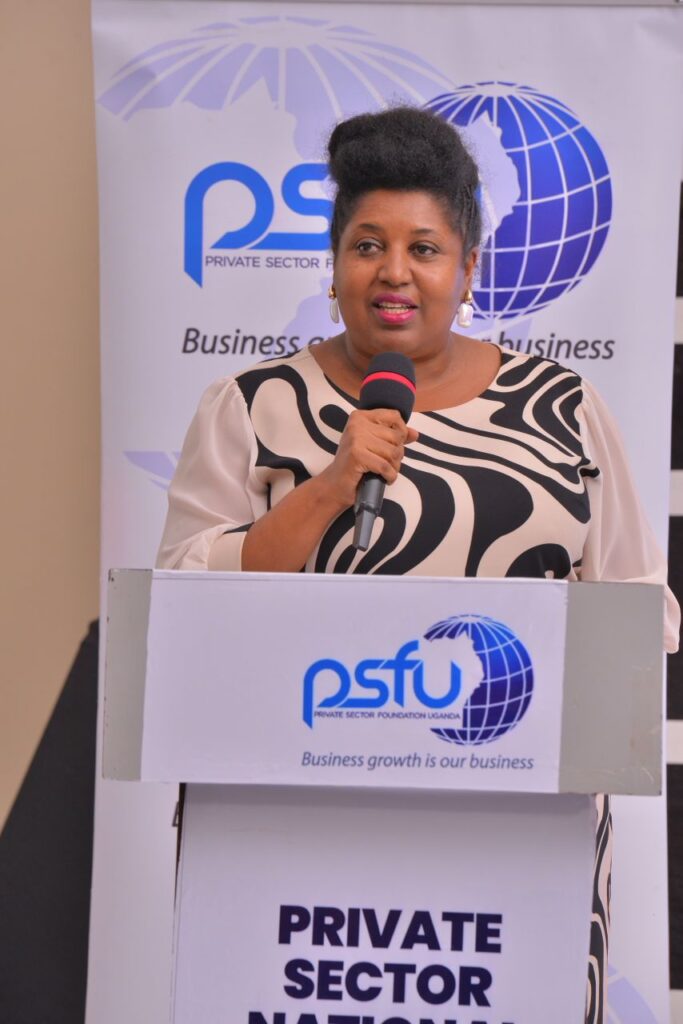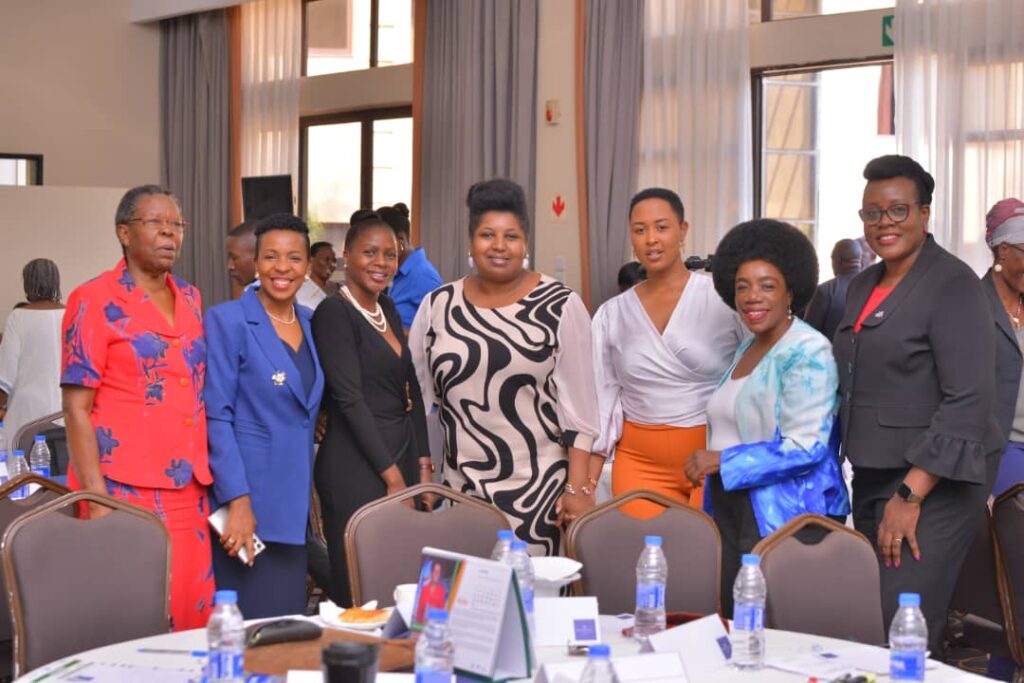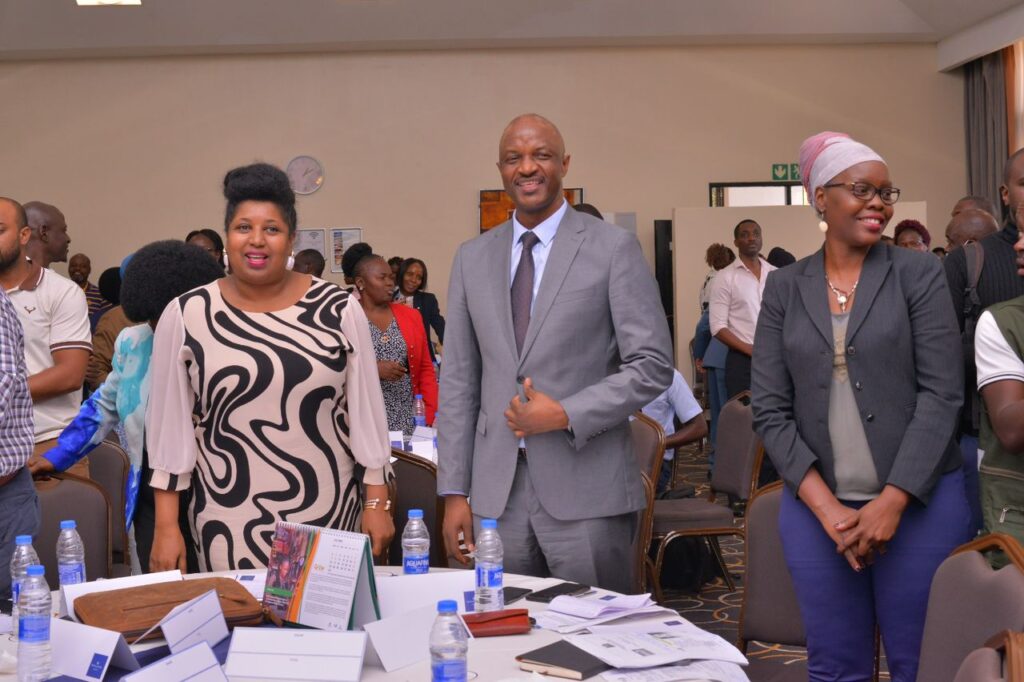Sarah Kagingo, Vice Chairperson of the Private Sector Foundation Uganda (PSFU), has applauded Uganda’s economic stability amid global uncertainties while emphasising the need to address outstanding domestic arrears to sustain growth.
Speaking at PSFU’s National Post-Budget Dialogue held at Protea Hotel Kampala on Monday, 16 June, under the theme “Unlocking Investment and Job Opportunities through Commercial Agriculture, Industrialisation, Digital Transformation, and Market Expansion,” Kagingo highlighted that Uganda’s private sector is poised for growth but requires greater access to affordable credit and expanded market opportunities to fully realise its potential.
On regional stability, Kagingo hailed the government for playing a crucial role in national and regional stability.

“Stability is a prerequisite to the thriving of the private sector. Mr. PSST, please extend our commendation to the government for Uganda’s stability and the critical role our country plays as an anchor state for regional stability and beyond,” said Kagingo.
While delivering remarks, which were lauded by PSST Ramathan Ggoobi as a great grasp of strategic matters, Kagingo outlined private sector wins in the budget and key concerns.
She lauded the government for macroeconomic stability, containing inflation at 3.4% – the lowest in the region, a stable shilling -one of the most stable on the African continent, and a 14% return on investment. “This is inspite of the disruption of global supply chains and unrest in the region,” observed Kagingo.

She also noted Uganda’s projected growth rate of at least 7% in the medium term of the 2025/2026 financial year.
“We commend the government for aligning the national budget with the NDP IV and for measures that directly support the private sector, such as the three-year income tax holiday on Startups, the recapitalisation of Uganda Development Bank by UGX 1 trillion, and the increase in domestic arrears clearance from UGX 200 billion to UGX 1.4 trillion,” Kagingo noted.

“We welcome the three‑year income tax holiday for Startups —this incentive will encourage more businesses to start, formalise and to some extent contribute to the expansion of the tax base. Currently, tax is largely dependent on a few big taxpayers as the majority of Ugandans remain outside the taxable fold.”
She urged the government to extinguish domestic arrears within two years, as delayed payments have crippled many businesses. “We acknowledge the stepping up of the budget allocation to domestic arrears from Shs 200 billion last financial year to Shs 1.4 trillion this year.”

On tourism, Kagingo welcomed the budget increase to touriism and complimentary initiatives that support the sector. “We welcome the construction of facilities for the African Cup of Nations (AFCON), enhanced security in key tourism areas, and the launch of the construction of the Kabale-Mgahiga road project.”
“While the sector has seen a budgetary increase, substantial investment is still required in marketing and infrastructure, especially in high-value ecologica zones such as Bwindi National Park. Tourism has the potential to generate over USD 50 billion for the economy,” she noted.

Kagingo also highlighted key pain points, including persistent electricity fluctuations affecting manufacturers, high lending rates (averaging 17% compared to China’s 1.5%), and patient capital.
She commended the government’s support for Science, Technology, and Innovation (STI), with notable investments in initiatives such as Kiira Motors, and Shs 835.98 billion allocation in the 2025/26 budget. Other critical recommendations included: accelerating certification processes of products by Uganda National Bureau of Standards (UNBS) to stop delays and further engagement of EAC countries on integration of the regional market by eliminating non-tariff barriers and new tariff ones slapped by the said countries 2025/26 budgets.

Kagingo also cautioned against the dangers of disinformation and urged the busineess community verify online links before forwarding it, especially within business-focused WhatsApp groups, stating that falsehoods harm business partnerships and how the country is perceived internationally, which in turn negatively affects businesses.
On sustainability, she rallied companies and business associations around the triple bottom line (people, planet ,and profit), green financing and compliance with ESG (Environmental, Social, Governance) principles, noting that “they are fast becoming global standards on which international capital pegs investment decisions”. She added, “How do you treat your people? What measures have you taken to stop environmental degradation? Potential business partners do not need your permission to look into your business.”

In her closing remarks, Kagingo paid tribute to PSFU’s founders, past boards and the leadership of the current board chair, Mr Humphrey Nzeyi, for “strategic direction that has seen PSFU create jobs for young people, in collaboration with government and development partners.
As PSFU marks 30 years this August, the private sector’s message was clear: Uganda’s economic prospects are promising, but realising them will require bold policy execution, targeted investment, and continued government-private sector synergy.












